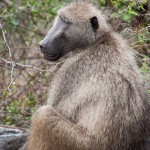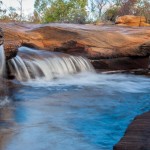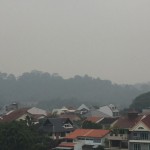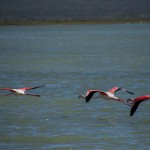On sharks and fisheries, some food for thought this Lunar New Year.
Author: Suzanne Ou
World Wetlands Day
On 2 February 1971, 18 nations met in Iran to sign the Convention on Wetlands. 45 years later, over 2000 Ramsar sites across the world conserve the diverse and productive ecosystem that is the wetlands. On the same day 45 years later, the 17 students returned to the Duke University Marine Lab after two weeks learning about marine ecology on St. John Island in the U.S. Virgin Islands.
Highlights from South Africa: Monkey See, Monkey Do

What does one do when a troop of baboons decide to disrupt your sleep? Reflect on the different cultural perceptions of primates and possible solutions to human-wildlife conflicts from the warmth of your bed of course.
As 2015 flies by

Where would you go in the world? Travelling has boundless benefits, but we speak little of its costs. A recount of travels in 2015 (aka an excuse to share some photos) and the environmental impact of aviation.
Protecting Nature: Keep People Out, Or Let Them In?
The first of the Provost’s Forum on Conservation and Health was held on Tuesday, 1 December 2015. Sponsored by the Provost’s Office and the Duke Tropical Conservation Initiative, the panel discussed the conflicts between satisfying human needs while maintaining biodiversity in protected areas.
Highlights from South Africa: Here be Aliens

Fishes introduced to the Biedouw River in the South African cape have become a severe conservation challenge. There is no easy solution for protecting the endangered endemic fishes.
Highlights from South Africa
I particularly love being out in the field, learning and applying the ecological theories in real life, surrounded by people who are equally interested in environmental science and conservation policies.
A Hazy Way Forward

Slash and burn agricultural practices in Indonesia have resulted in a thick haze smog blanketing it’s neighbours for years. What needs to be done to prevent future incidents?


